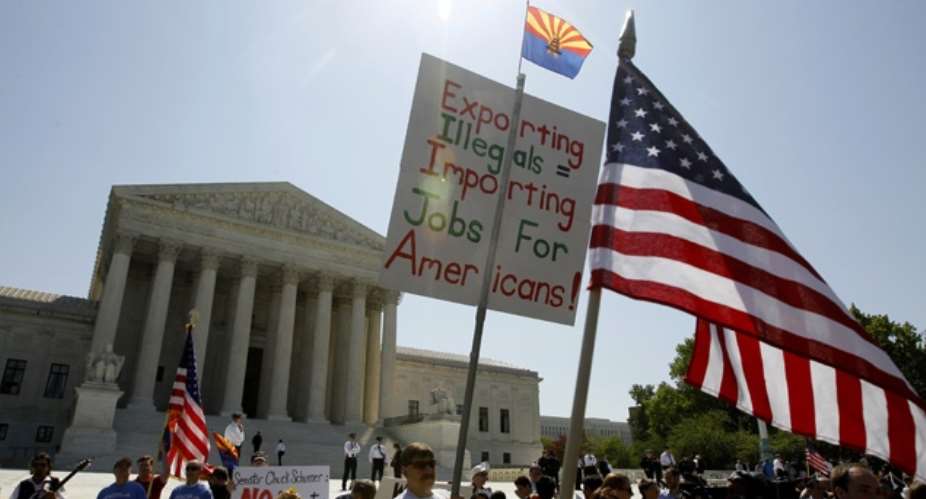USA to make sweeping changes if the Supreme Court OKs Arizona immigration law.
The United States officials are waiting for a green light from the Supreme Court that would allow local police enforce the most controversial part of Arizona's immigration law. Justices in the United States have strongly suggested they will allow "show me your papers' law."
Over the last years some states are frustrated with America's porous borders and the rejected long held notion that Washington is responsible for confronting illegal immigration for the weak laws passed so far to let local police confront illegal immigration. The Supreme Court is poised in the coming months to let the states know whether they haven't crossed the line. Now the justices have strongly suggested that they are ready to let Arizona enforce the most controversial part of its law, a requirement that police officers will check the immigration status of people they suspect are in the country illegally. Such a ruling could codify the type of local enforcement that some local authorities in Arizona have carried out over the past years and open the door to such enforcement in states with similar laws, such as Alabama, Georgia, Indiana, South Carolina and Utah.
"More involvement by local police in immigration enforcement, an involvement that hadn't previously been seen," Kevin Johnson law school dean at the University of California-Davis and an expert in immigration law, said. The most controversial parts of the Arizona law were put on hold by a federal judge shortly before they were to take effect in late July 2010, but the statute has encouraged other states to take up similar legislation and combined with other state immigration laws and an ailing economy which played a part in 170,000 illegal immigrants leaving Arizona since 5 years.
Arizona has argued it pays a disproportionate price for illegal immigration because of its 370-mile border with Mexico and its role as the busiest illegal entry point into the country.
The Obama administration which challenged the law, said the law conflicts with a more nuanced federal immigration policy that seeks to balance national security, law enforcement, foreign policy, human rights and the rights of law-abiding citizens and immigrants. Civil rights groups that back the administration say Arizona's and the other states measures encourage racial profiling and ethnic stereotyping.
FRANCIS TAWIAH (Duisburg - Germany)





 We’ll no longer tolerate your empty, unwarranted attacks – TUC blasts Prof Adei
We’ll no longer tolerate your empty, unwarranted attacks – TUC blasts Prof Adei
 Bawumia donates GHc200,000 to support Madina fire victims
Bawumia donates GHc200,000 to support Madina fire victims
 IMF to disburse US$360million third tranche to Ghana without creditors MoU
IMF to disburse US$360million third tranche to Ghana without creditors MoU
 Truck owner share insights into train collision incident
Truck owner share insights into train collision incident
 Paramount chief of Bassare Traditional Area passes on
Paramount chief of Bassare Traditional Area passes on
 Two teachers in court over alleged illegal possession of BECE papers
Two teachers in court over alleged illegal possession of BECE papers
 Sunyani: Victim allegedly shot by traditional warriors appeals for justice
Sunyani: Victim allegedly shot by traditional warriors appeals for justice
 Mahama vows to scrap teacher licensure exams, review Free SHS policy
Mahama vows to scrap teacher licensure exams, review Free SHS policy
 Government will replace burnt Madina shops with a new three-story, 120-store fac...
Government will replace burnt Madina shops with a new three-story, 120-store fac...
